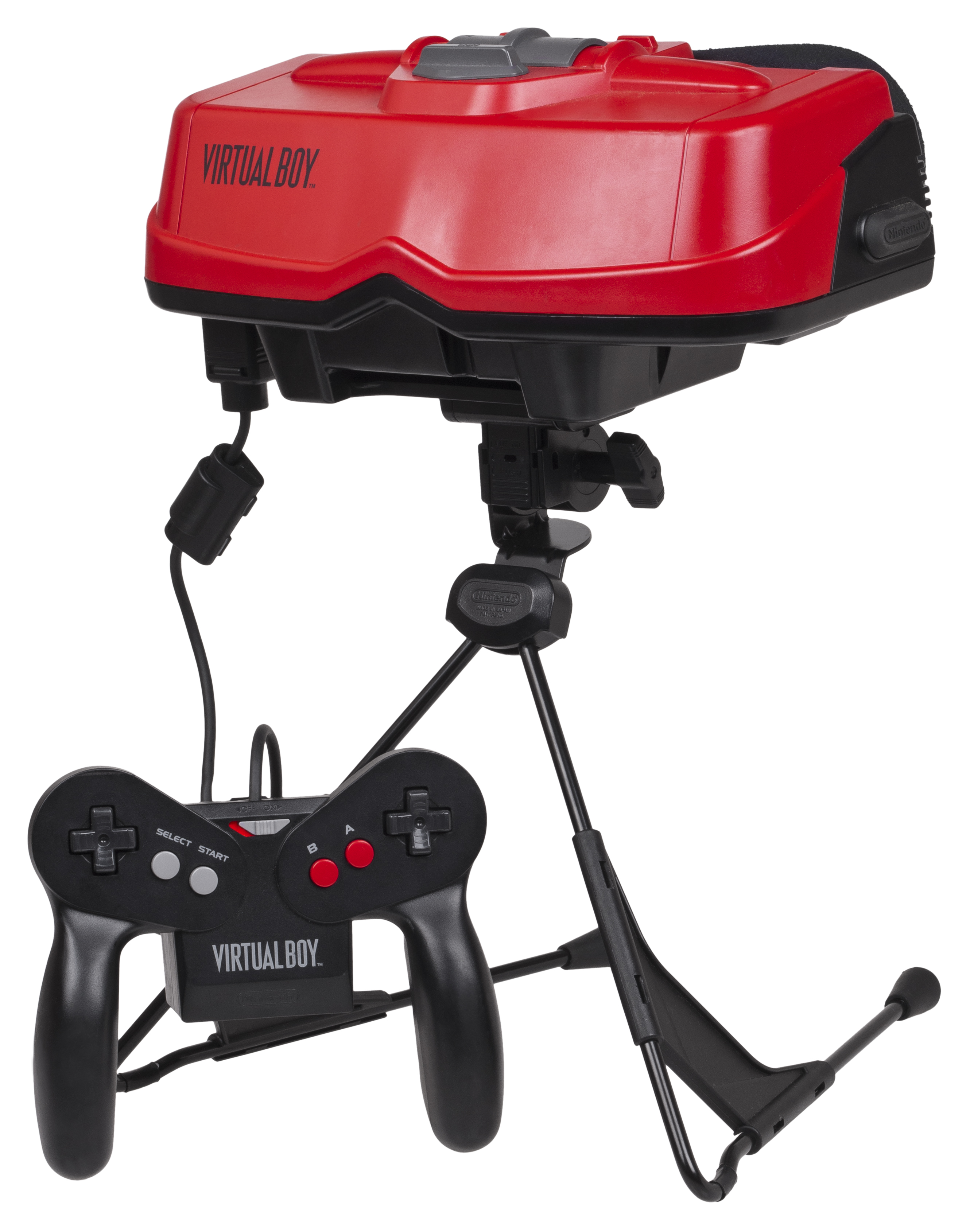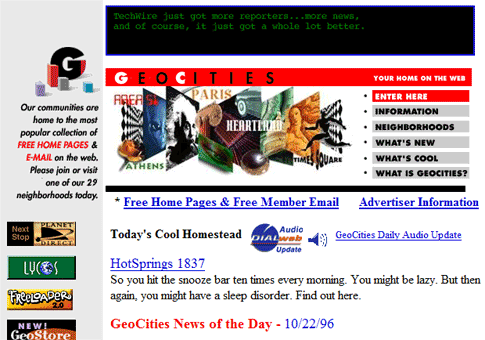
It seems like only yesterday, but the 1990’s are now a staggering 14 years away. The era of Britpop, day-glo and questionable hair choices was also the birthplace of many everyday technologies, seeing the evolution and widespread adoption of mobile phones, satellite television and games consoles, to name but a few. We’ve compiled some of our favourites for a quick trip down memory lane…
Pagers
Back before mobile phones, pagers were the cool way to keep in touch with your friends and contacts. Small enough to clip onto your belt, they displayed short messages, with upscale versions even coming with modem capability. Now mainly used in hospitals or large government buildings, the pager’s nadir may be gone, but its influence remains strong.

Virtual Reality
Once just the stuff of science-fiction dreams, the 90’s brought with it one of the top gadgets of the decade – the Nintendo VirtualBoy. Marking the first mass-market VR console, it was launched in 1995 to fill the void before the Nintendo 64’s launch, but despite a massive advertising push, suffered from high pricing and a major shortage of games (only 14 were ever released in the US), and only ever sold 1.26m units worldwide.

Tamagotchi
For many of us currently under the age of 30, a Tamagotchi was our first taste of responsibility. Taking care of a virtual pet (of strangely miscellaneous breeding) proved harder work than many of us imagined, as users had to ensure the sprite remained well-fed, watered and amused.

The golden age of gaming
GTA V? Meh. Skyrim? Rubbish. Angry Birds? Nonsense. Whenever anyone puts together a lsit of truly classic video games, it always includes 90s titles, when original concepts and great gameplay ruled. The SNES, Sega Saturn, PlayStation One, N64, and even the Dreamcast, not to mention the GameBoy, stole more hours of our life than we ever thought possible – which wasn’t surprising given the games on offer.
Mortal Kombat, Sonic, Tomb Raider, GoldenEye, Pokemon, Crash Bandicoot, Shenmue, Legend of Zelda: Ocarina of Time, Resident Evil…we could go on and on.

Terrestrial TV
March 30 was a landmark date in the 90s, as Channel Five was launched to mark the UK’s first new TV channel for fourteen years. Before the advent of satellite television and the hundreds of channels it brought, viewers were restricted to four main channels, and some could argue that this limited space meant that the quality of programming was much higher. On the other hand, we also had The Big Breakfast…

DVD Players
It’s hard to remember just how revolutionary DVDs were when they replaced VHS as the main method of watching films and other media. The ability to jump around various chapters, increased interactivity with the wide variety of extras, and increased sound and visual quality made DVDs a major leap forward in home technology.

Actual buttons on devices
Yes, we know BlackBerry still persists with a physical interface, but there is no doubt that the touchscreen is currently king. However at the birth of the mobile phone industry in the 1990’s, users still relied on actual buttons to input texts and numbers – sure it meant sore fingers after a while, but at least you didn’t run the risk of embarrassing typos!

Geocities
Originally launched in 1995, GeoCities was the third most visited site on the entire Internet when it was bought by Yahoo in 1999. Offering a simple platform to create individual websites, the service marked the first time many of us really felt engaged with the web, as it allowed us to create a site we could call home. However, it suffered a major decline as we entered the 21st century, and is now available only in Japan.

Colourful Macs
Today Apple is known for its smooth, simplistic design and feel, with whites, blacks and greys the pallet of the day. But it wasn’t always so – the iMac G3, released in 1998, wowed consumers used to beige computers with its range of thirteen vibrant colours, designed by current Apple VP Jonathan Ive. Featuring several game-changing features (it was the first PC to offer USB ports as a standard and do away with a floppy disk drive), it’s no surprise that the G3 was one of the products that helped turn around Apple’s struggling fortunes and make it the technology titan it is today.

Microsoft Solitaire
Finally, the daddy of them all. First bundled with Windows 3.0 in 1990 as a way to acclimatise users to GUI displays and using a mouse on home computers, Solitaire quickly became the game of choice for bored workers and schoolchildren everywhere. Offering countless replay value (as long as you didn’t get caught), the waterfall-esque finale that rewarded victorious players was worth the risk.






